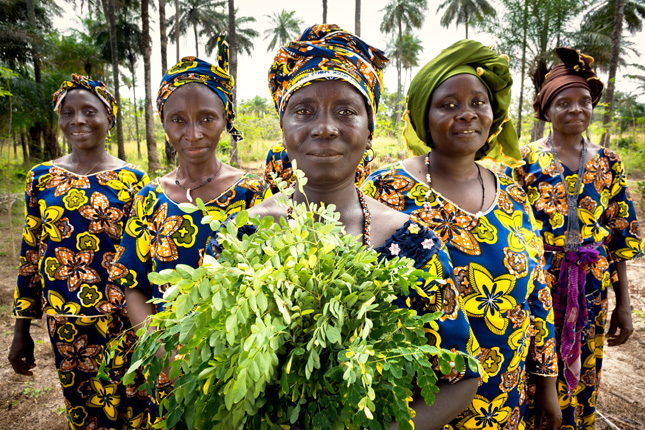-
Taking Our Power Back: Women and Girls Are Key to Food Security During Conflict
April 13, 2018 By Saiyara Khan
“Gender equality and women’s empowerment [need to be] at the center of the fight against extreme poverty, hunger, and malnutrition, and also in any efforts to build sustainable peace,” said Ilaria Sisto at a recent CSIS event on the critical role of women and girls in ensuring food and nutrition in times of conflict.
“It is now estimated that 124 million people across 51 countries are facing food insecurity,” primarily driven by conflict and climate-related disasters, said Sisto, the Gender and Capacity Development Officer at the UN Food and Agriculture Organization—a 15 percent increase from 2017, and almost a 50 percent increase from the year before.
Women and girls are key to food production and water collection in most parts of the world, so “women’s well-being, education, and control of household budgets is the single largest determinant of whether communities suffer from lack of access to food,” especially during conflict, said Kavita Ramdas, strategy advisor for MADRE and former President and CEO of the Global Fund for Women.
Structural inequalities, however, limit the participation of women and girls in decision-making roles, and deny them control over important economic resources, such as land and livestock. We need to consider “women’s ability to take action to improve her life and livelihood… the ability to make decisions and negotiate in terms of the key elements of her life,” as well as understand the structures that leave her disempowered, said Mara Russell, the Director of Food Security and Resilience at CARE-USA.
“Approximately one in five Syrian girls aged 15 to 19 is married today in Lebanon,” said Natacha Stevanovic-Fenn, a Senior Sociologist for Gender and Development at the International Center for Research on Women. “Discriminatory gender norms that undervalue women and girls’ roles in the family and community” and keep them dependent on men contribute to high rates of child marriage, she said. Early marriage leads to earlier, more frequent, and less healthy pregnancies. The children of young mothers are less likely to be educated, so that “child marriage perpetuates the cycle of food insecurity and malnutrition.”
“Nobody empowers anybody else,” said Ramdas, urging the audience to speak of “women’s power, claiming our power, owning that power, and taking that power back when that power has been taken away.”
Read more:
- The status of women, their health, and household food security are deeply intertwined, says USAID’s Sylvia Cabus.
- A research study finds that ending child marriage could save $566 billion globally by 2030.
- In Hot Hungry Planet, journalist Lisa Palmer looks outside the box to explore how women’s empowerment and family planning can increase food security
Sources: Center for Strategic and International Studies, World Food Programme
Photo Credit: Guinea – Rural Women’s Cooperative Generates Income and Improves Community Life, November 2015, courtesy of UN Women
 A Publication of the Stimson Center.
A Publication of the Stimson Center.






